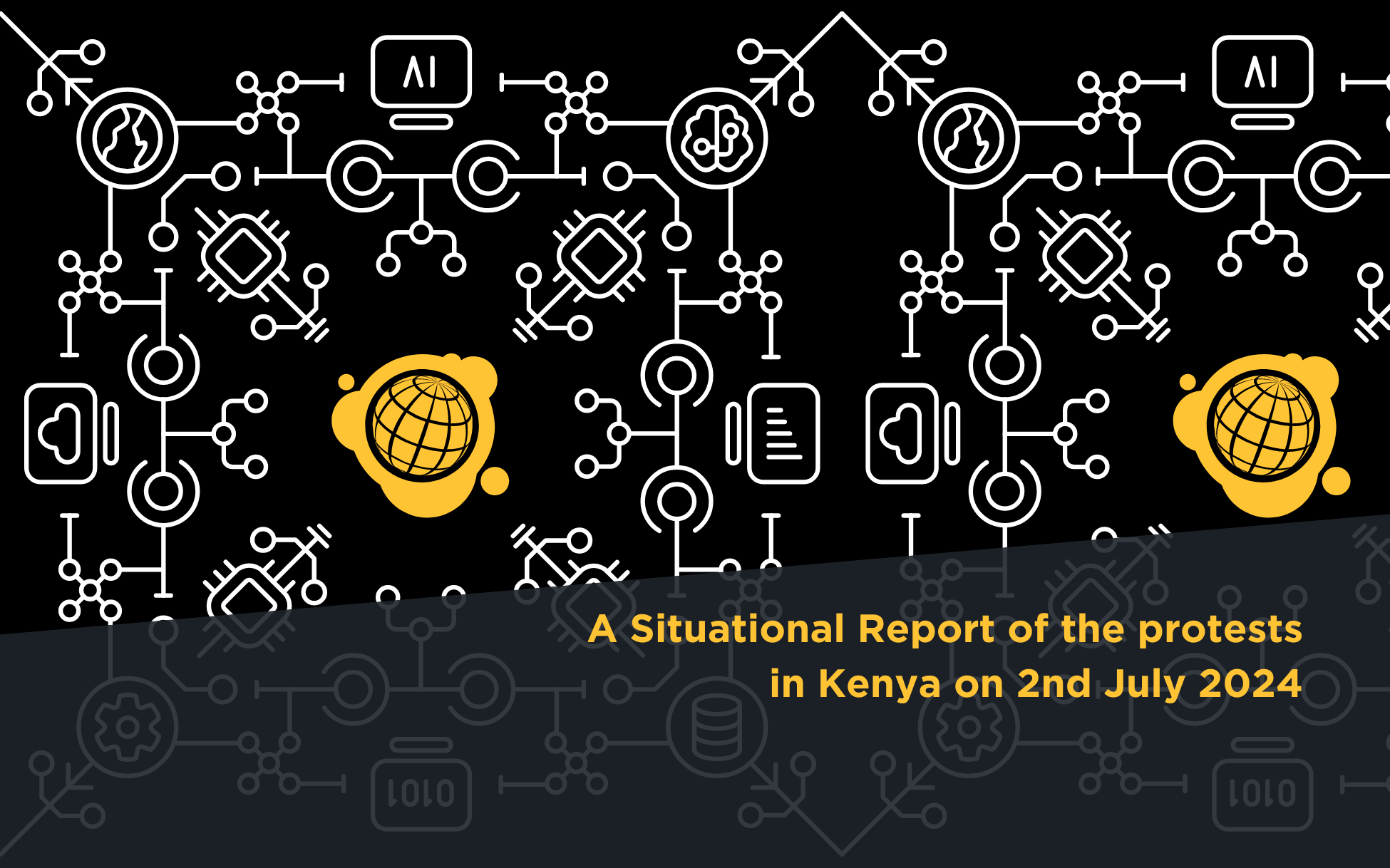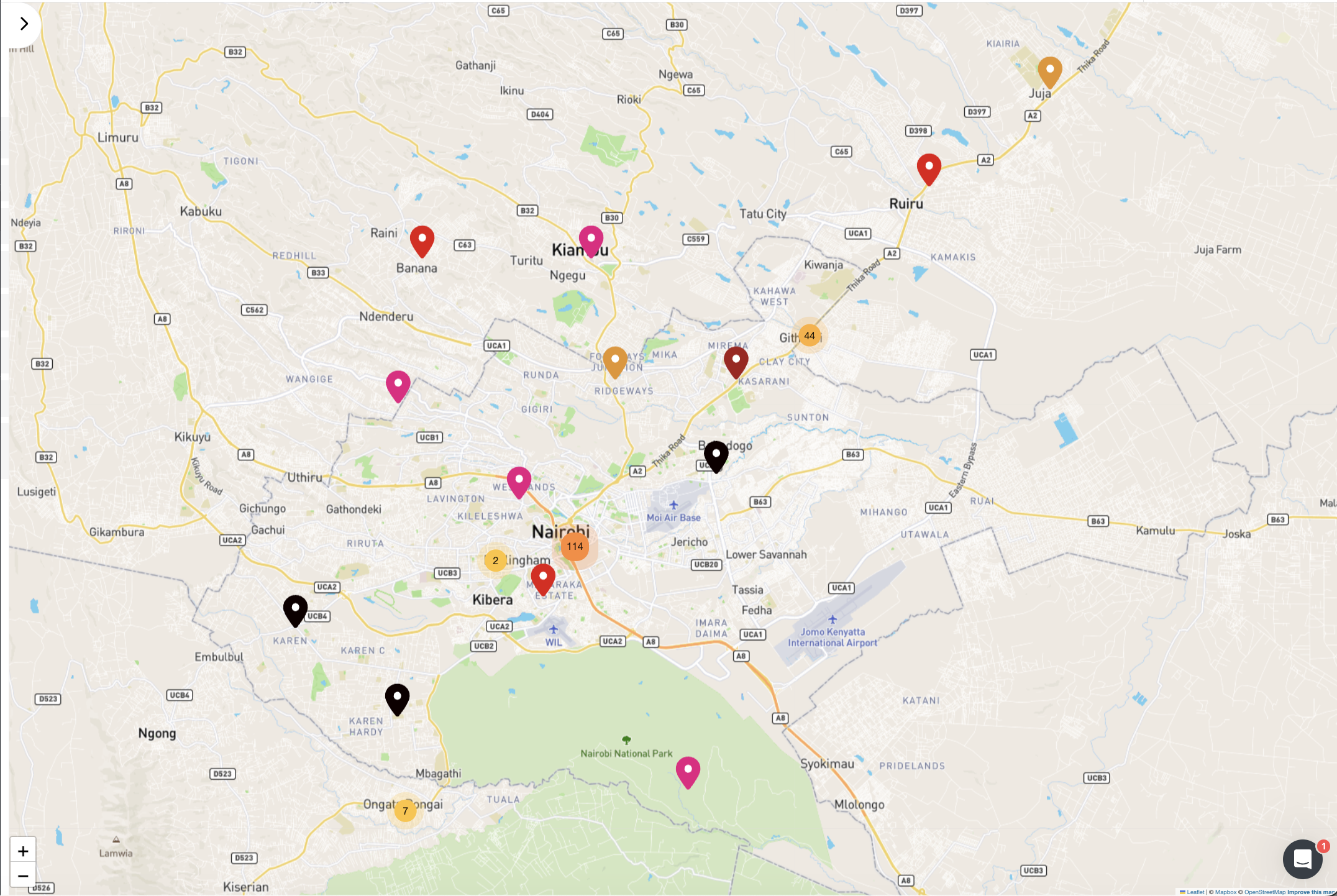Situational Report #2: A Report of the Protests in Kenya on 2nd July 2024

Jul 5, 2024

Overview
Kenyans turned up in many parts of the country on Tuesday 2nd July for anti-government demonstrations. The protests took place in all major towns in Kenya. The towns include Nairobi, Mombasa, Eldoret, Nakuri, Kisumu and smaller towns of, Kisii, Kilifi, Kwale, Kitengela, Mlolongo, Mtwapa, Kisii and Ukunda. In Nairobi CBD, police and protesters engaged in running battles as the officers fired teargas to disperse them. They lit fires across the streets while chanting anti-government slogans. A section of the protesters carried coffins and dropped them on the streets seemingly to honor those who died during the anti-Finance Bill 2024 last week.
 Photo credit: Donwilson Odhiambo
Photo credit: Donwilson Odhiambo
The Hijacking of Peaceful Protests
Protests that started off peacefully were infiltrated by criminal gangs allegedly sponsored by politicians to mug and vandalize people and businesses. Business owners in CBD Nairobi devised a strategy to ensure their shops were not looted. They banded together to protect their businesses from looters who they say are masquerading as protesters. Activists and protesters blamed Tuesday's violence on infiltrators they said had been unleashed by the government to discredit their movement, and said it was now time for protesters to disperse. The nationwide demonstrations signal that the spontaneous youth protest movement has not been appeased, despite abandoned plans for tax rises that triggered the unrest last week.
A shift from the Finance Bill to the State of the Country’s Governance
In Tuesday’s protests, the discussion shifted from the Finance Bill to governance, the rule of law, and the state of the country. The youth demanded a total overhaul of the country’s politics and pertinent policy issues. The youth expressed their anger and their disappointment with the government for the killings of their fellow youth during the past protests with chants of “Ruto Must Go” carrying the day.
Findings
The Ushahidi internal instance has been social listening on X (formally Twitter) and keeping track of public opinions, missing persons allegedly abducted by security forces, incidents of police brutality, and help being provided by various human rights, legal, and medical agencies.

The deployment pulled in 89,262 organic tweets on 2nd July. We PURPOSELY ignored retweets and analyzed UNIQUE tweets only. Ushahidi has classified and categorized these reports using Artificial Intelligence Models developed in partnership with Dataminr's AI for Social Good team and additional support from Qhala. Classification of the reports has yielded some interesting findings below.
Public opinions remain prevalent at 94.42%. This is an increase compared to last week's protests. Additionally, other reports analyzed indicated: violent protests at 2.73%, peaceful protests at 2.17%, help provided at 0.24%, missing people at 0.21%, police brutality at 0.20%, and internet shutdown at 0.03%. It is important to note that help-provided reports decreased compared to last week after a section of volunteer medics withdrew their services due to security concerns. Reports on missing people and internet shutdowns have also reduced compared to the past week.

We sought to understand the content of the public opinions. Word cloud analysis indicates “Ruto Must Go” as the most used word followed closely by a call to occupy the CBD. Words like “Ruto Must Resign Now” and “Occupy Everywhere” were also widely used.

Classification of reports is still ongoing, and the Ushahidi team will strive to share daily updates on what we’re learning from data collected on the platform.